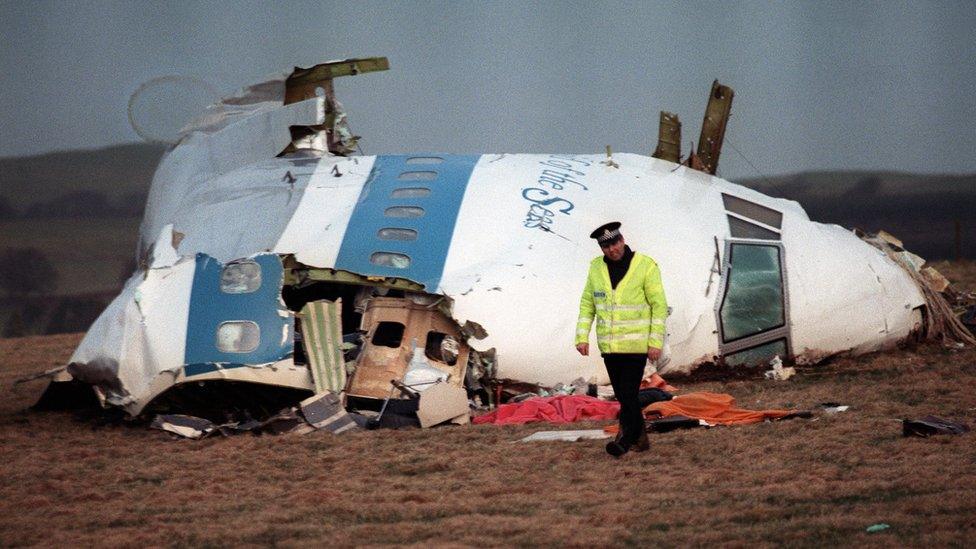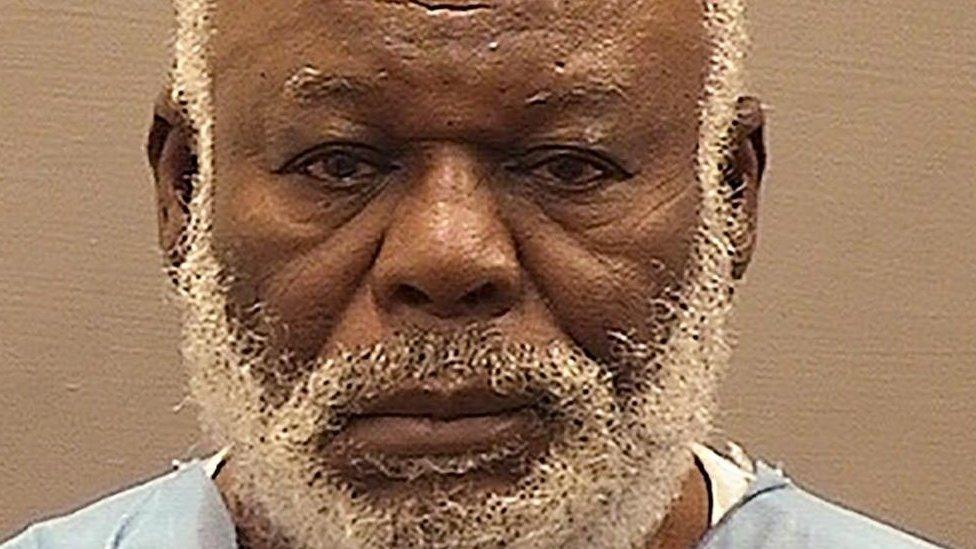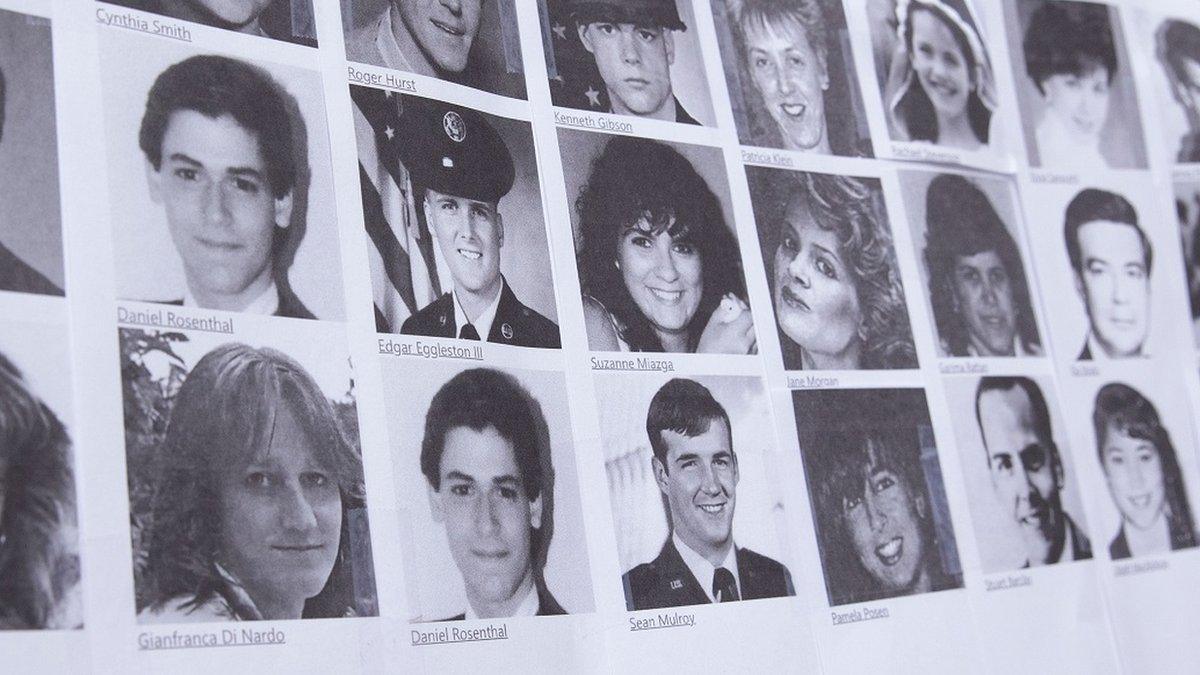Legal bid to give Lockerbie families access to Masud trial
- Published

A total of 270 people died in the Lockerbie bombing on 21 December 1988
US politicians are being asked to allow people from 21 countries to listen live to the second Lockerbie bombing trial.
A Libyan man is currently in US custody, accused of making the device that destroyed Pan Am 103 on 21 December, 1988.
Of the 270 victims, 190 were from the US, 43 from the UK and the remaining from 19 other nations.
American prosecutors say their families should have access to a phone line to allow them to follow the case.
Trials in US federal courts are not televised and a judge has previously ruled there is no legal basis for allowing such a move.
Abu Agila Masud was handed over to the US authorities in as yet unexplained circumstances in Libya in December 2022.
Appearing in a Washington court under his full name Abu Agila Mohammed Mas'ud Kheir Al-Marimi, the convicted bomb maker faces several charges, including destruction of an aircraft resulting in death.
He has entered a not guilty plea and so far no date for a trial has been set.

The US alleges Abu Agila Masud made the bomb that downed Pan Am flight 103
Pan Am 103 was carrying 259 passengers and crew when it was blown apart at 31,000 feet. Another 11 people died when the wreckage fell on their homes in Lockerbie.
Prosecutors from the US Department of Justice say many of the relatives of the victims are too old or infirm to travel to Washington to watch the court proceedings in person.
In their request to US lawmakers, they said: "This combination of advanced age and geographic distance and dispersion from Washington DC means that many victims face significant obstacles to obtain meaningful access to the court proceedings."
The application by the US prosecutors defines "victims" as anyone who suffered "direct or proximate harm" by the bombing, was present at or near the scene when it occurred or immediately afterwards, and their relatives.
On one view, that could include people in Lockerbie who witnessed the crash and its aftermath, along with members of the emergency services and military.
The American prosecutors also argue that the US investigation has involved international co-operation, in particular from police and the Crown Office in Scotland.
They are seeking statutory authority for the court to allow "remote video and telephone access" to preliminary evidential hearings and the trial itself.
Although video is mentioned, the application specifically requests the approval of a dedicated listen-only telephone line.
Kara Weipz, president of the US group Victims of Pan Am Flight 103, said: "This is something I've fought for and would just be for our case.
"We've waited 35 years for a trial in this country. Families would be given a special code and they could call in from wherever they are, whether it's California or Scotland.
"There are many people who've been affected directly by this. It's what makes our case so unique.
"Any senator can take this forward to push it through as legislation."
The first Lockerbie trial took place at a specially-convened Scottish court sitting at Camp Zeist in the Netherlands. Relatives of the victims were able to watch via remote video feeds in Scotland and the US.
That case ended with the conviction of Abdulbasset al-Megrahi, who was found guilty of mass murder and jailed for life. He was released by the Scottish government on compassionate grounds in 2009 and died in Libya three years later.
Scottish and American prosecutors alleged that the bombing was the work of the Libyan intelligence service and others were involved along with Megrahi.
The US justice department first announced criminal charges against Abu Agila Masud in December 2020.
They have alleged that he confessed to making the Lockerbie bomb after he was taken into custody following the overthrow of Colonel Gaddafi's government in 2012.
Related topics
- Published8 February 2023

- Published13 December 2022

- Published11 December 2022
